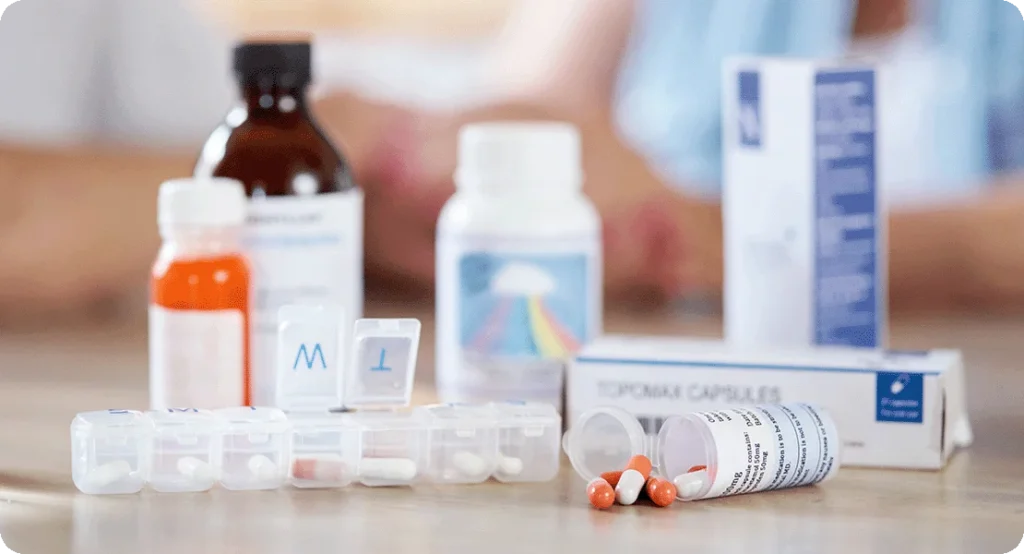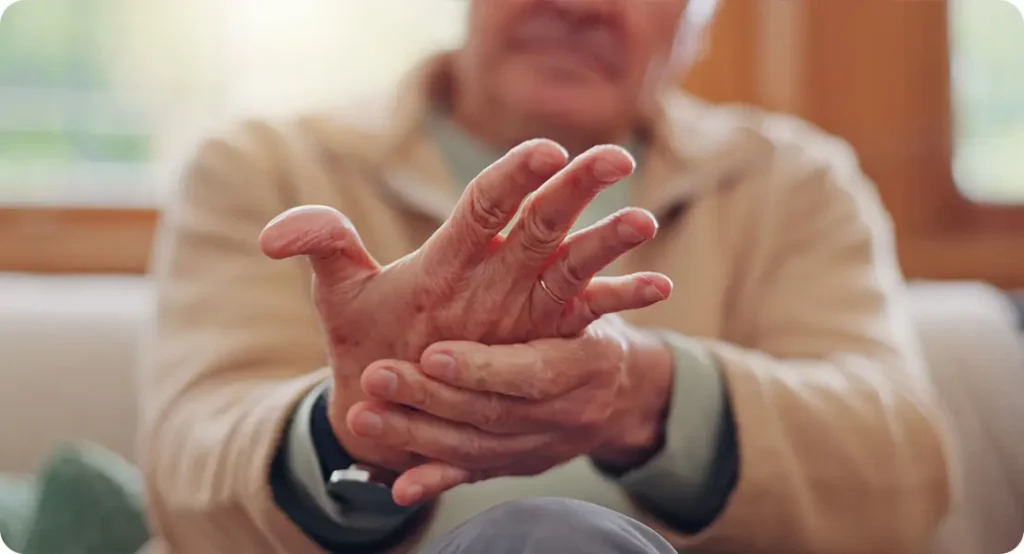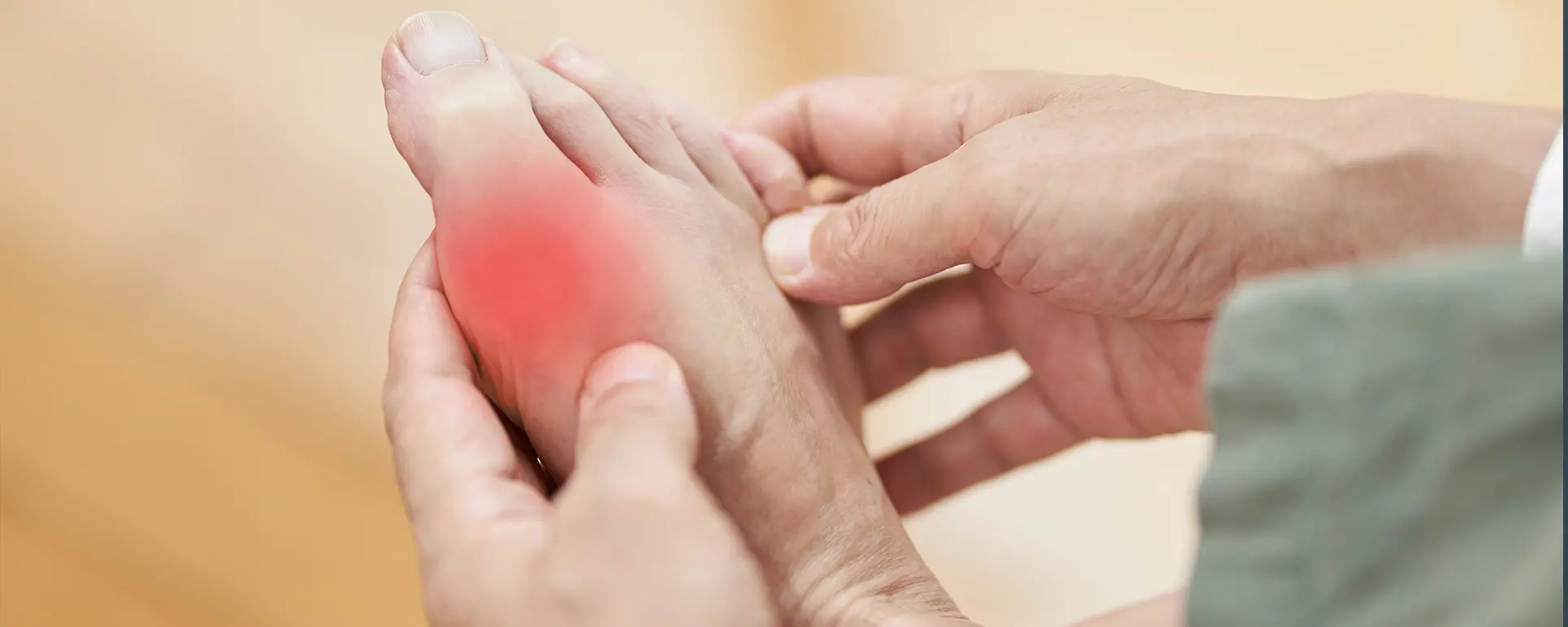If you’re living with gout and are now preparing for cataract surgery, you might have more on your mind than just your vision. Gout, a condition known for causing painful joint inflammation, can present some unique considerations when it comes to eye surgery. And it’s not just about the joints—it’s also about the medications you’re on, how your body handles uric acid, and how these factors could affect surgery and recovery.
In this article, we’re going to walk you through everything you need to know about having cataract surgery when you’ve got gout. From practical concerns like lying flat for surgery to medical issues like how your medication might interact with anaesthetic drugs, we’ll cover it all in clear, straightforward language.
Understanding Gout and Why It Matters in Eye Surgery
Let’s start with the basics. Gout is a type of arthritis caused by high levels of uric acid in the blood. When this acid crystallises, it forms sharp, needle-like structures that settle in the joints—most commonly the big toe, but it can affect other areas too, including the knees, ankles, wrists and fingers.
For people undergoing cataract surgery, two aspects of gout are particularly relevant: joint stiffness and the effects of medications. You’ll need to lie still and flat during the operation, and if your joints are inflamed or stiff, that can make things tricky. Add to that the fact that many people with gout are on medications that may interact with anaesthesia or increase the risk of certain side effects, and you’ve got a situation that requires careful planning.
It’s also worth noting that some systemic conditions commonly associated with gout—like kidney disease, hypertension, and metabolic syndrome—may further influence your suitability for certain anaesthetics or post-operative drugs. So, being open with your surgical team about all your health conditions is key.
Medication Timing: Allopurinol, Colchicine, and NSAIDs

One of the big questions that often comes up is whether to stop or continue gout medications before surgery. Let’s take a look at the main ones:
Allopurinol
Allopurinol is one of the most common drugs prescribed to reduce uric acid levels over time. It’s generally safe to continue taking this medication around the time of surgery. In fact, stopping it can cause a rebound increase in uric acid, potentially triggering a flare-up—which is the last thing you want while recovering from eye surgery.
However, your surgeon and GP or rheumatologist may discuss temporarily adjusting the dose if there are concerns about kidney function or potential drug interactions. Allopurinol itself doesn’t directly interact with anaesthetics, but its impact on renal function can be important in drug metabolism.
Colchicine
Colchicine is often used to treat acute gout flares or as a prophylactic when starting uric acid-lowering therapy. While it has anti-inflammatory benefits, it can also suppress bone marrow at higher doses and may interfere with other medications, particularly in people with kidney or liver problems.
Whether or not to stop colchicine will depend on your current dose, renal function, and overall health status. Your eye surgeon may ask your prescribing doctor for a quick consult before making a call.
NSAIDs (Non-Steroidal Anti-Inflammatory Drugs)
Ibuprofen, naproxen, and other NSAIDs are commonly used during gout flares. These drugs can increase the risk of bleeding and may interfere with kidney function, especially in older adults.
If you’re on NSAIDs leading up to cataract surgery, your anaesthetist will want to know. Sometimes, these medications are paused a few days before surgery depending on your bleeding risk and other medications you’re taking, such as aspirin or blood thinners.
Joint Stiffness and Positioning During Cataract Surgery
Here’s something many people don’t think about until the day of the procedure—having to lie flat on an operating table for around 20 to 30 minutes without moving. For someone with gout affecting the spine, hips, or knees, this can be more challenging than it sounds.
If you’ve got stiff joints or are recovering from a recent flare-up, let your surgeon and anaesthetist know in advance. There are things they can do to help—such as using extra padding, slight elevation of the legs, or mild sedation to help you stay relaxed.
Sometimes, people with severe joint limitations may even benefit from having the surgery done in a slightly reclined position rather than fully flat. It’s not ideal, but if the cataract is not too complex, experienced surgeons can usually work around mild positioning limitations.
Anaesthesia Considerations for Gout Patients
Cataract surgery is usually done under local anaesthetic, typically with eye drops or a small injection around the eye. However, if you’ve got significant anxiety, mobility issues, or trouble staying still, mild intravenous sedation may be used.
If you’re taking medications like colchicine or NSAIDs, your anaesthetist may make specific adjustments to the type and dose of sedative used. In some cases, they might choose alternatives to avoid any renal stress or bleeding risks. Always make sure you provide a complete list of your medications at the pre-operative assessment.
People with tophi—those hard uric acid deposits that can form under the skin—should also mention this to their surgical team. While they’re rarely located near the eye, their presence elsewhere can indicate more severe gout or potential systemic issues that could influence anaesthetic safety.
Managing Inflammation and Preventing Flare-Ups
It’s common for people with gout to worry about triggering a flare during the stress of surgery. While there’s no guaranteed way to prevent this, there are steps you can take to minimise the risk.
First, don’t stop your maintenance medications unless your doctor tells you to. If you’ve recently had a flare, it may be worth delaying surgery until things have settled down—no one wants to recover from cataract surgery while also limping around with a swollen ankle or foot.
Second, stay hydrated before and after surgery. Dehydration is a known trigger for gout attacks, and it’s something that can easily happen around surgery time, especially if you’ve been fasting or have avoided fluids due to nausea.
Finally, discuss the idea of taking a short course of low-dose colchicine or corticosteroids with your GP or rheumatologist before surgery as a preventive measure. This should only be done under medical supervision, but it’s something that might be considered for those with frequent or unpredictable flares.
Gout-Related Comorbidities and Their Surgical Impact

Many people with gout also have other health conditions that need to be taken into account during cataract surgery. Here are a few worth highlighting:
Chronic Kidney Disease
This is one of the most common comorbidities in gout patients, often due to long-standing hyperuricaemia and repeated use of NSAIDs. Impaired kidney function can affect how your body clears anaesthetic drugs, antibiotics, and pain medications.
Your surgical team may avoid certain medications or adjust dosages to reduce stress on your kidneys. If your kidney function is significantly reduced, they may consult with a nephrologist ahead of time.
Cardiovascular Disease
Gout is associated with a higher risk of hypertension, atherosclerosis, and heart disease. These conditions don’t typically interfere directly with cataract surgery, but they do affect anaesthesia planning. Blood pressure should be well controlled on the day, and your anaesthetist may monitor you a bit more closely during the procedure.
Diabetes and Metabolic Syndrome
If you have gout along with diabetes or metabolic syndrome, your body’s healing response might be slower. Blood sugar control is important both before and after surgery. Poor glucose management can increase your risk of infection and delay wound healing—even in something as small as a cataract incision.
Make sure your diabetes care plan is up to date and bring any relevant test results (like HbA1c) to your pre-op appointment.
Lifestyle Adjustments and Nutritional Support
After cataract surgery, your body enters healing mode. And that’s where diet and lifestyle can make a surprising difference—especially for people with gout.
Hydration
We mentioned this earlier, but it bears repeating. Drink plenty of fluids before and after your surgery to keep uric acid levels in check and support kidney function. Just be sure to follow any fasting instructions provided by your surgeon.
Avoid High-Purine Foods
Sticking to a gout-friendly diet in the days leading up to and following your surgery can help prevent flare-ups. Avoid red meat, organ meats, shellfish, and high-fructose drinks. Focus instead on whole grains, vegetables, low-fat dairy, and plenty of water.
Alcohol Moderation
Alcohol, especially beer and spirits, can spike uric acid levels. Cutting back in the weeks surrounding your surgery is a wise move, particularly if you’ve had recent gout episodes.

Communication Between Specialists Matters
This is one of those situations where communication between your eye surgeon, GP, and rheumatologist can make a huge difference. If your gout is severe or you’ve had recent flares, it’s worth asking your GP to send a brief summary of your medication history and current health status to the cataract clinic.
This kind of multidisciplinary coordination helps ensure that your medications, surgical plan, and recovery support are all aligned—and it can prevent last-minute surprises that might delay your surgery.
Frequently Asked Questions: Cataract Surgery and Gout
- Should I stop taking my gout medication before cataract surgery?
In most cases, you should not stop your gout medication unless specifically advised by your doctor. Drugs like allopurinol are maintenance medications that help control uric acid levels, and stopping them suddenly can increase your risk of a flare-up, which could complicate your recovery. However, certain medications like NSAIDs or colchicine might need dose adjustments or temporary pauses depending on your kidney function or bleeding risk, so it’s important to discuss your full medication list with your surgical team well in advance. - Can gout affect how I’m positioned during cataract surgery?
Yes, gout can cause joint stiffness or pain, particularly in the back, hips, or knees, which may make it difficult to lie flat during the operation. If this is the case, your surgeon and anaesthetist can often make adjustments, such as using additional supports, slightly reclining the surgical chair, or offering light sedation to help you stay comfortable and still throughout the procedure. - Will cataract surgery trigger a gout flare?
Surgery can place stress on the body, and in some people this may contribute to a gout flare, especially if their uric acid levels are poorly controlled or they become dehydrated. To reduce the risk, it’s advisable to stay on your maintenance medication, stay well-hydrated, and avoid sudden dietary or medication changes around the time of surgery. In some situations, a short course of colchicine or steroids may be used preventively—this should always be discussed with your doctor first. - Is it safe to have cataract surgery during a gout flare-up?
It’s generally recommended to wait until a gout flare has settled before having cataract surgery. Flare-ups can cause significant discomfort, which may interfere with your ability to stay still during the procedure or recover comfortably afterward. If you’re in the middle of a flare, let your surgeon know as early as possible so they can consider rescheduling and help coordinate care with your GP or rheumatologist. - Can my gout medications interact with cataract surgery anaesthesia?
Some gout medications, especially NSAIDs and colchicine, can have interactions with certain anaesthetic drugs or affect kidney and liver function, which are important for drug metabolism. While most patients won’t experience major issues, your anaesthetist will want to be aware of what you’re taking so they can plan accordingly. It’s essential to bring a full list of all medications, including any over-the-counter pain relief, to your pre-operative assessment. - How does chronic kidney disease from gout affect cataract surgery?
Chronic kidney disease, which is common in people with long-standing gout, can influence how your body handles anaesthetic agents and postoperative medications. If your kidneys aren’t working optimally, you may require adjusted drug doses or alternative choices for sedation, antibiotics, or pain relief. Your surgical team may consult your nephrologist or GP to ensure the safest approach is taken for your situation. - What lifestyle changes can help prevent a gout flare around surgery time?
In the days surrounding your surgery, it helps to avoid high-purine foods like red meat, shellfish, and alcohol—particularly beer—which can raise uric acid levels. Drinking plenty of water and maintaining a balanced, low-purine diet will reduce your flare risk and support kidney function. It’s also wise to avoid dehydration from fasting by following your surgeon’s instructions closely and resuming fluid intake as soon as it’s safe after surgery. - Can my eye drops after surgery affect my gout or kidney function?
Most of the eye drops used after cataract surgery act locally and don’t significantly affect the rest of the body. However, in rare cases—particularly in people with impaired kidney function or multiple medications—there could be mild systemic absorption. If you have advanced kidney disease or are on several drugs for gout and other conditions, your doctor may review the post-operative drop regimen to make sure it’s safe and appropriate for you. - Should my rheumatologist be involved in my surgical planning?
Yes, especially if you have complicated gout or are on medications that require monitoring, like colchicine or steroids. Your rheumatologist can provide useful insight into your recent flare history, medication safety, and any precautions to take before and after surgery. Coordinating care between your eye surgeon, GP, and rheumatologist can help minimise risk and ensure a smoother surgical experience. - Is cataract surgery riskier if I have long-term gout?
Cataract surgery itself is not significantly riskier in people with gout, but certain aspects such as medication interactions, joint positioning, and comorbidities like kidney disease or cardiovascular issues can add complexity. With proper planning and good communication between your medical team, these risks can be effectively managed, allowing you to have a safe and successful outcome.
Final Thoughts: Planning Ahead Makes All the Difference
Having gout doesn’t mean cataract surgery needs to be complicated—but it does mean that a little extra preparation goes a long way. Think of it as teamwork between you and your medical team, where your job is to be open and proactive about your health.
Make sure your surgical team knows about your medications, joint issues, recent flares, and other health conditions. Ask about options for positioning if you’ve got stiffness or mobility concerns. Stay hydrated, eat mindfully, and don’t make sudden changes to your medications without medical advice.
At the London Cataract Centre, we regularly see patients with complex medical backgrounds, including gout. Our team is experienced in adjusting care plans to make surgery comfortable and safe for every individual. If you’re concerned about how your condition might affect your upcoming cataract procedure, don’t hesitate to ask—we’re here to help you see clearly and heal comfortably.
References
- Durant, J.T. et al., 2020. Uric acid as a risk factor for cataracts in patients with gout. Euromedica, 10(1), pp.31–34. Available at: https://journal-archiveuromedica.eu/euromedica_01_2020/archiv_euromedica_01_2020_maket_31_03_2020_ARTICLE_33.pdf [Accessed 3 July 2025]. This study reports that elevated serum and ocular fluid uric acid in gout patients may increase cataract risk
- Shimada, H. and Nakashizuka, H., 2021. Cataract Surgery by Intraoperative Surface Irrigation with 0.25% Povidone–Iodine. Journal of Clinical Medicine, 10(16), article 3611. Available at: https://doi.org/10.3390/jcm10163611 [Accessed 3 July 2025]. While focusing on surgical technique, this emphasises the importance of ocular surface management in patients with potential ocular gout deposits
- Luo, C. et al., 2017. The association between gout and cataract risk: a meta‑analysis. PLOS ONE, 12(6), e0180188. Available at: https://doi.org/10.1371/journal.pone.0180188 [Accessed 3 July 2025]. This meta-analysis found gout significantly increases the odds of cortical and posterior subcapsular cataracts
- Zhang, X. et al., 2024. Uric acid–driven NLRP3 inflammasome activation triggers lens epithelial senescence. Cell Death Discovery, 10, 19. Available at: https://www.nature.com/articles/s41420-024-01900-z [Accessed 3 July 2025]. Demonstrates mechanistic links between high aqueous humour uric acid and cellular processes contributing to cataract progression (nature.com).
- Berger, H.J. and Ballen, P.H., 1966. Gouty arthritis as a complication of ophthalmic surgery. American Journal of Ophthalmology, 62(4), p.755. Available at: https://pubmed.ncbi.nlm.nih.gov/5929142/ [Accessed 3 July 2025]. A classic report highlighting postoperative gout flare directly following eye surgery

